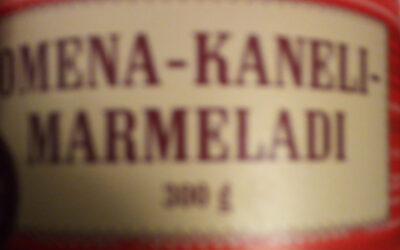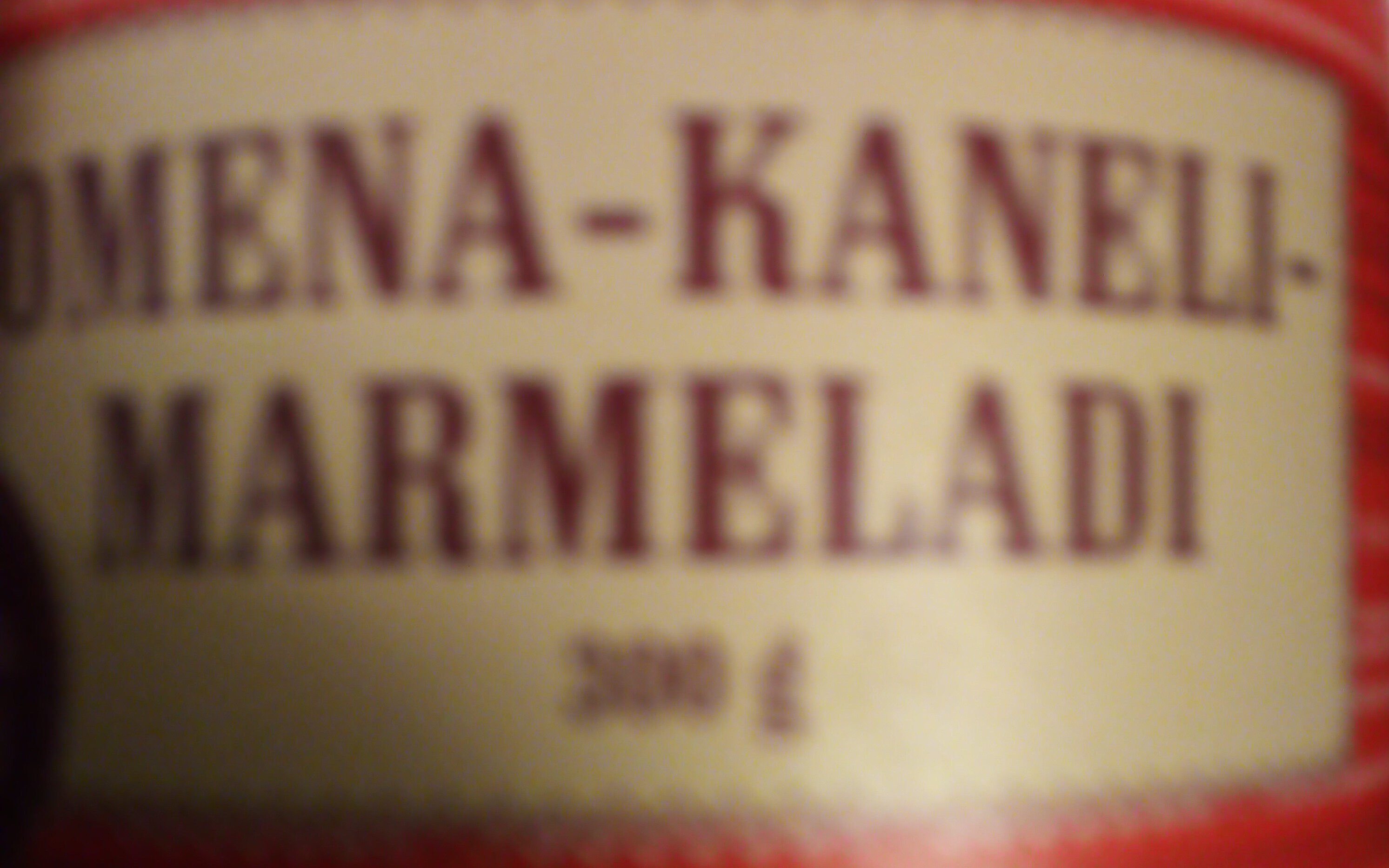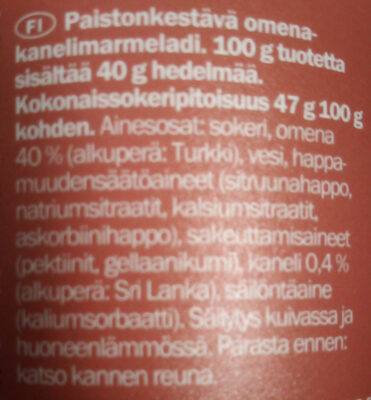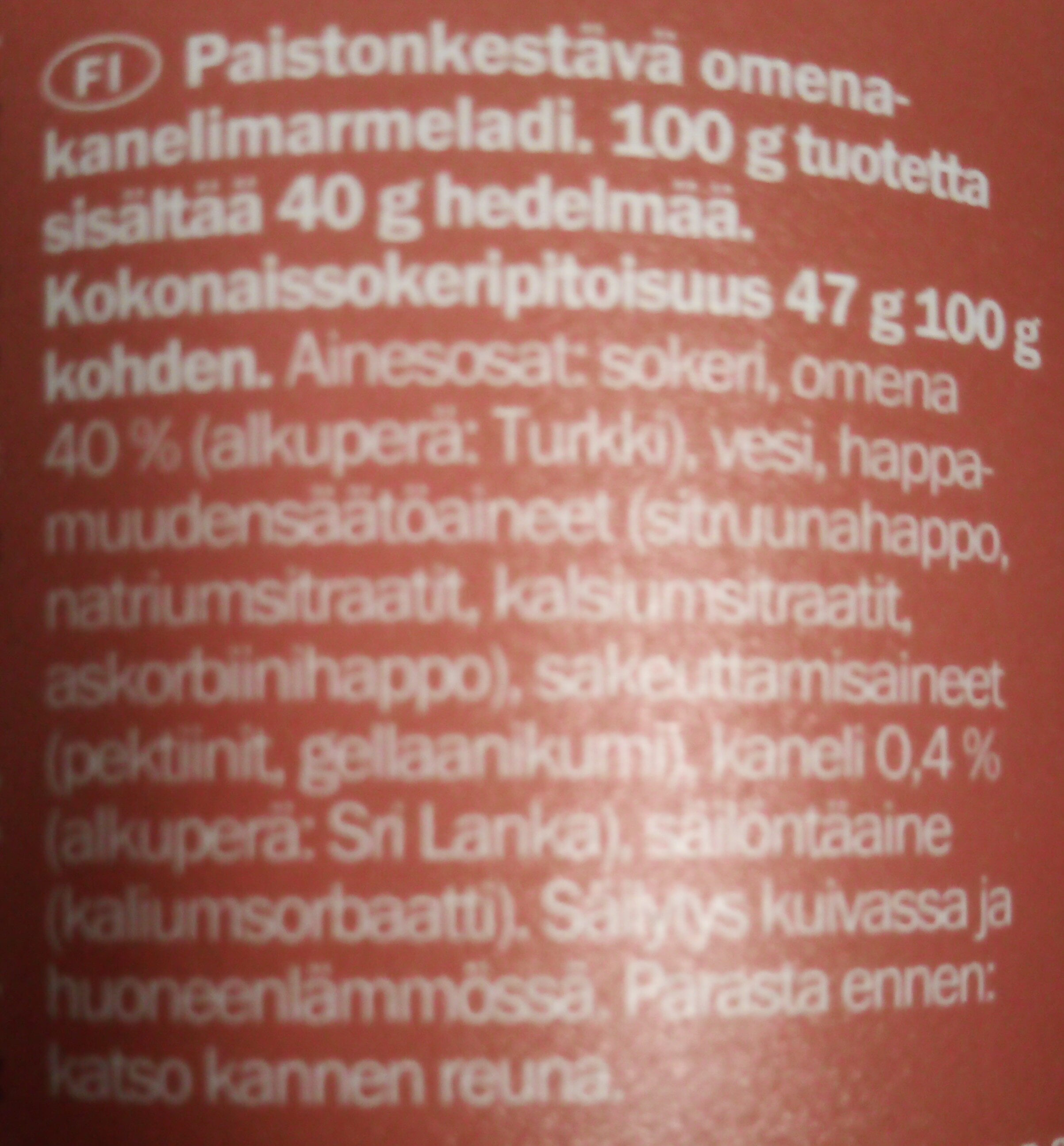Omena-kanelimarmeladi - Jouluaitta - 300g
This product page is not complete. You can help to complete it by editing it and adding more data from the photos we have, or by taking more photos using the app for Android or iPhone/iPad. Thank you!
×
Barcode: 4056489072027 (EAN / EAN-13)
Quantity: 300g
Brands: Jouluaitta
Categories: Plant-based foods and beverages, Plant-based foods, Breakfasts, Spreads, Plant-based spreads, Sweet spreads, Fruit and vegetable preserves
Origin of ingredients: Sri Lanka, Turkey
Countries where sold: Finland
Matching with your preferences
Environment
Packaging
Transportation
Report a problem
Data sources
Product added on by labeleat
Last edit of product page on by jumati.
Product page also edited by hungergames, labeleat.inKzz95NQ0lgOA2aagqQl2JPeNmK, openfoodfacts-contributors.
If the data is incomplete or incorrect, you can complete or correct it by editing this page.








